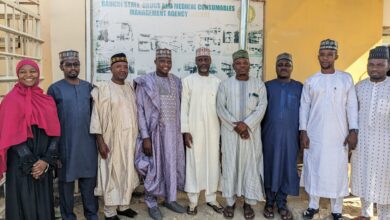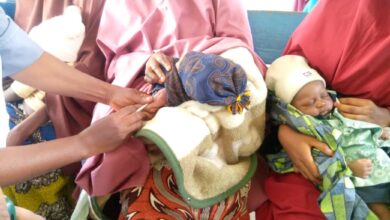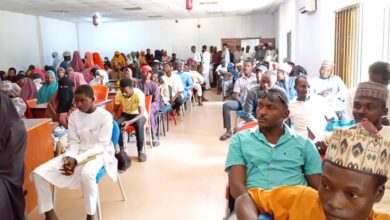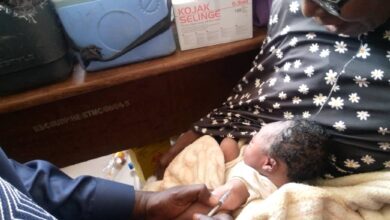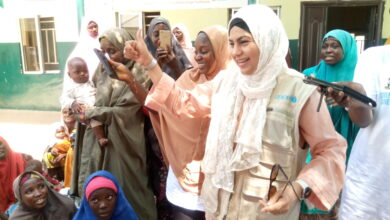UNICEF BACKS MEASLES VACCINATION CAMPAIGN TOWARDS COMBATING HIGH MORBIDITY AMONG CHILDREN.

By Uzairu Dauda Bunga
The United Nations Children’s Fund (UNICEF) is supporting a large-scale vaccination campaign across five states under Bauchi Field Office, aimed at immunizing over seven million children under the age of five against measles and polio.
This was stated by the Health Officer, UNICEF Bauchi Field Office Dr Patrick Akor, during a Media briefing as part of a broader effort to protect children, especially those in underserved “zero-dose” communities, from preventable diseases.
Dr. Patrick Akor highlighted the organization’s commitment to reaching every child with life-saving vaccines, noted that four states of Adamawa, Bauchi, Gombe, and Plateau have received a combined total of 4.021 million doses of the measles vaccine and 6.815 million doses of the oral polio vaccine, which Taraba State will only administer Polio vaccine in this campaign.
Dr Akor emphasized that UNICEF’s goal is to ensure no child is left behind, stressing that vaccination is a fundamental right of every child.
He expressed hope that the campaign would achieve 95% coverage across all states, local government areas, and wards involved.
The UNICEF Health Officer said in addition to supplying vaccines, UNICEF has also supported logistics and transportation for the campaign and provided training to health workers to maximize reach and ensure every child is vaccinated.
On his part, the UNICEF’s Social and Behavior Change Specialist, Bauchi Field Office Dr. Eki George, underscored that incomplete vaccination coverage is a major factor contributing to high child mortality rates in the region.
He said since the last integrated measles campaign in 2022, states like Bauchi still have 13 local government areas with large populations of zero-dose children, increasing the risk of outbreaks of diseases such as measles, which can lead to blindness and severe illness.
Dr George, said to further combat these challenges, UNICEF’s Bauchi Field Office is partnering with State Primary Health Care Development Boards across the five states to reduce the incidence of measles and improve child health outcomes.


